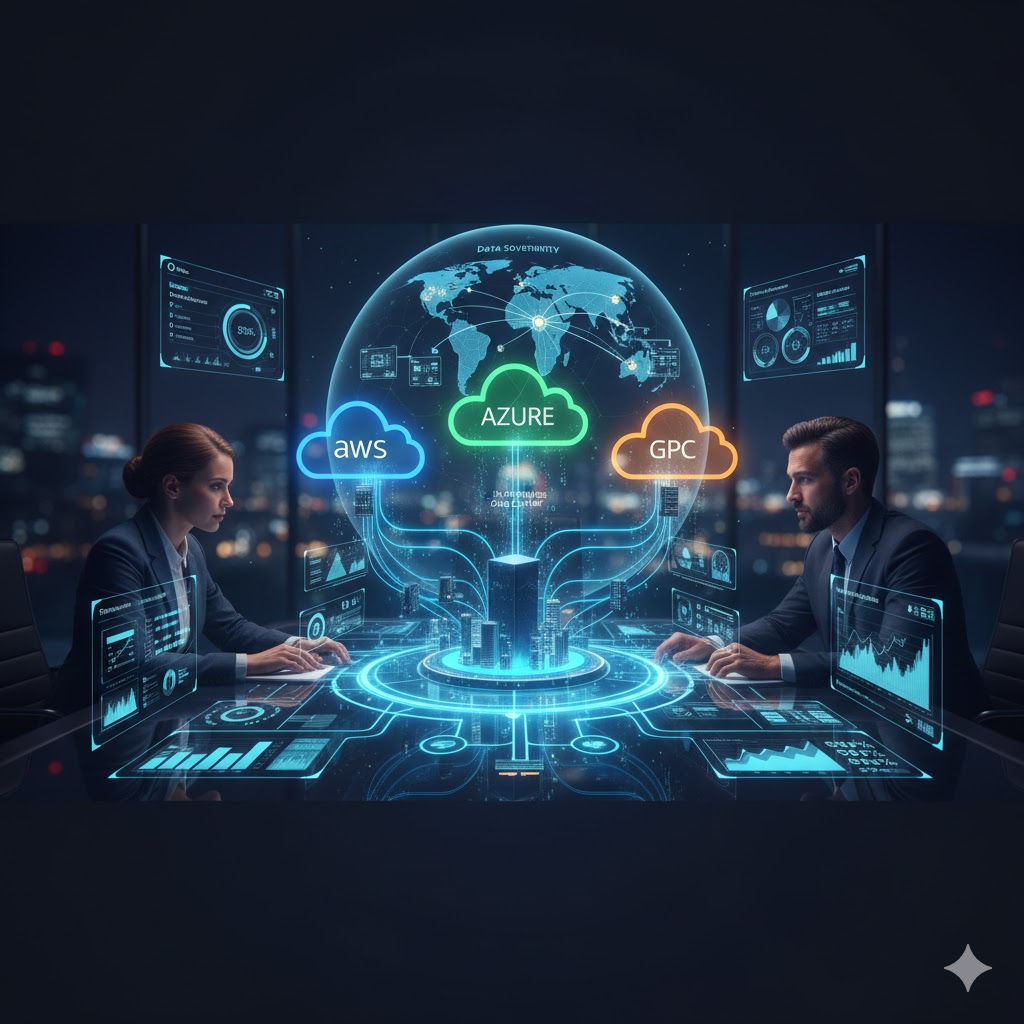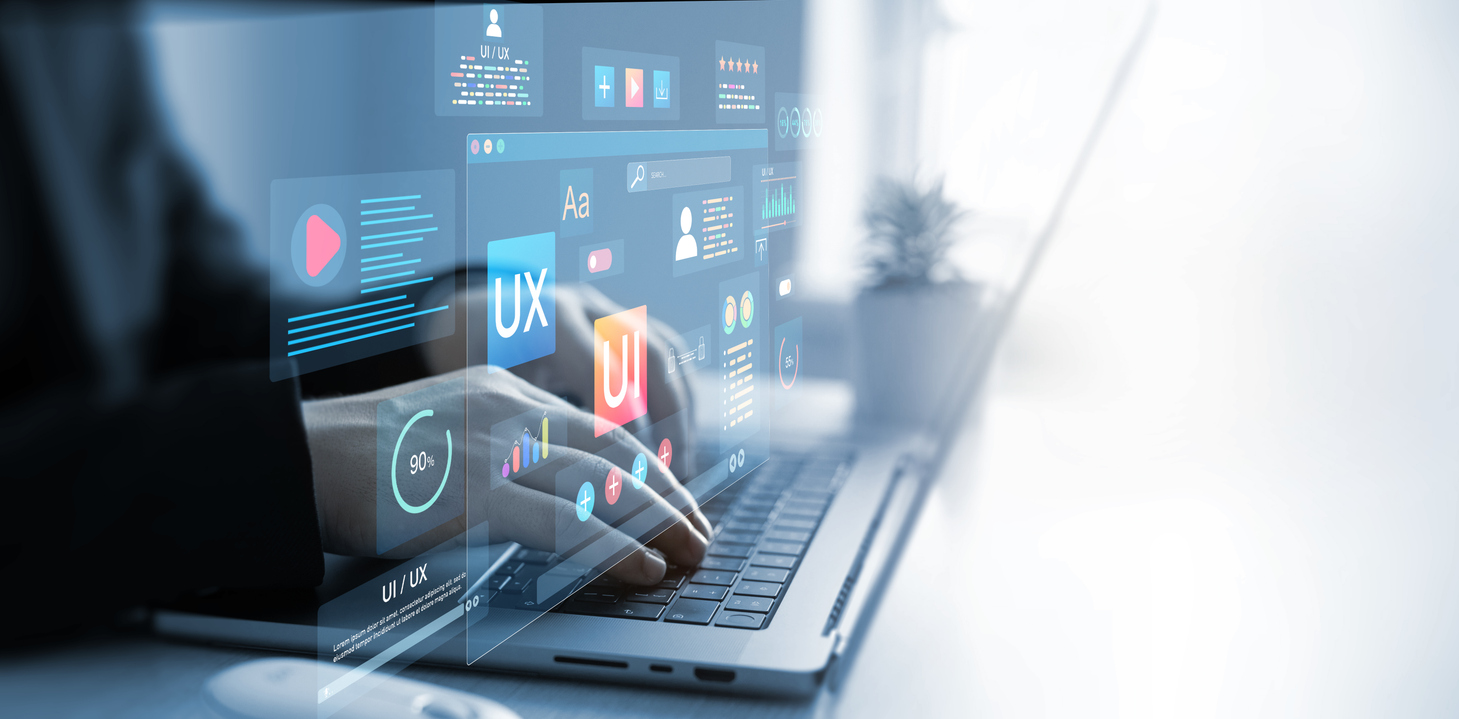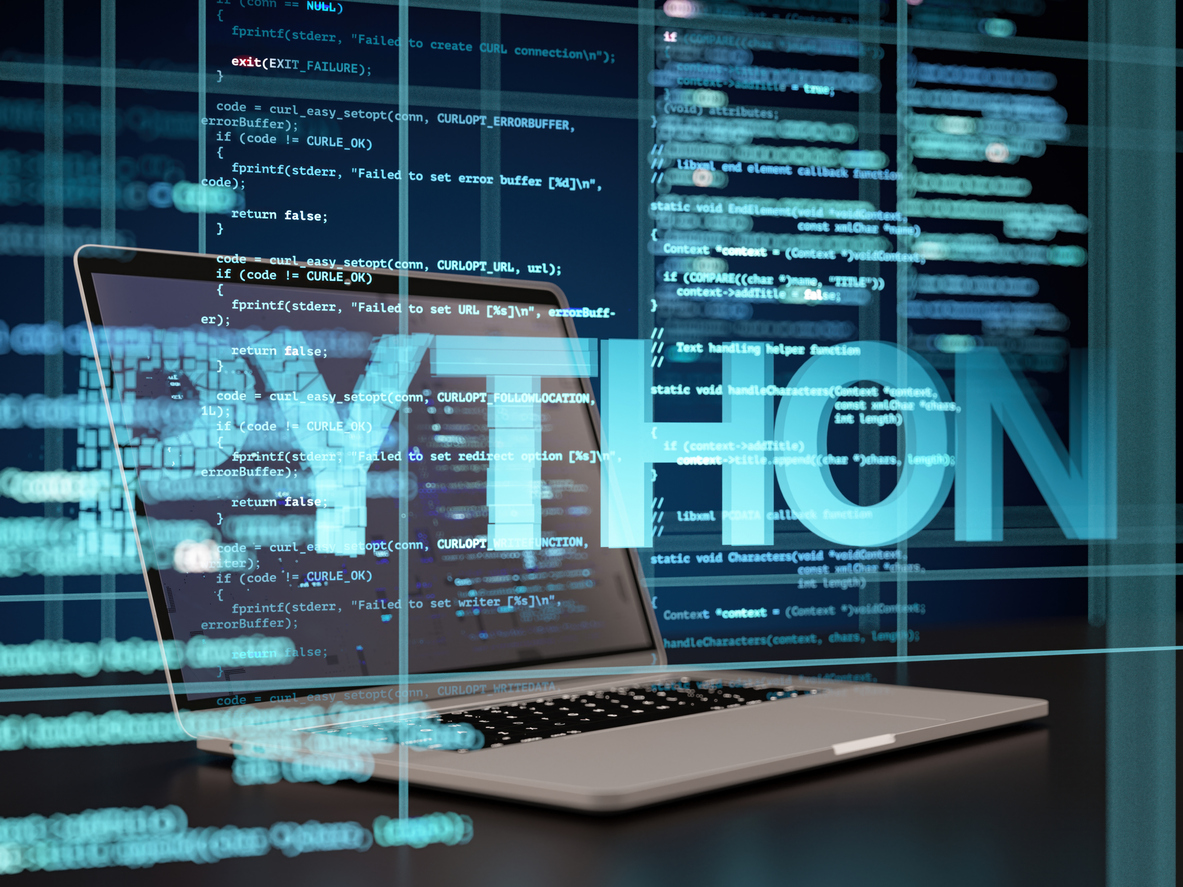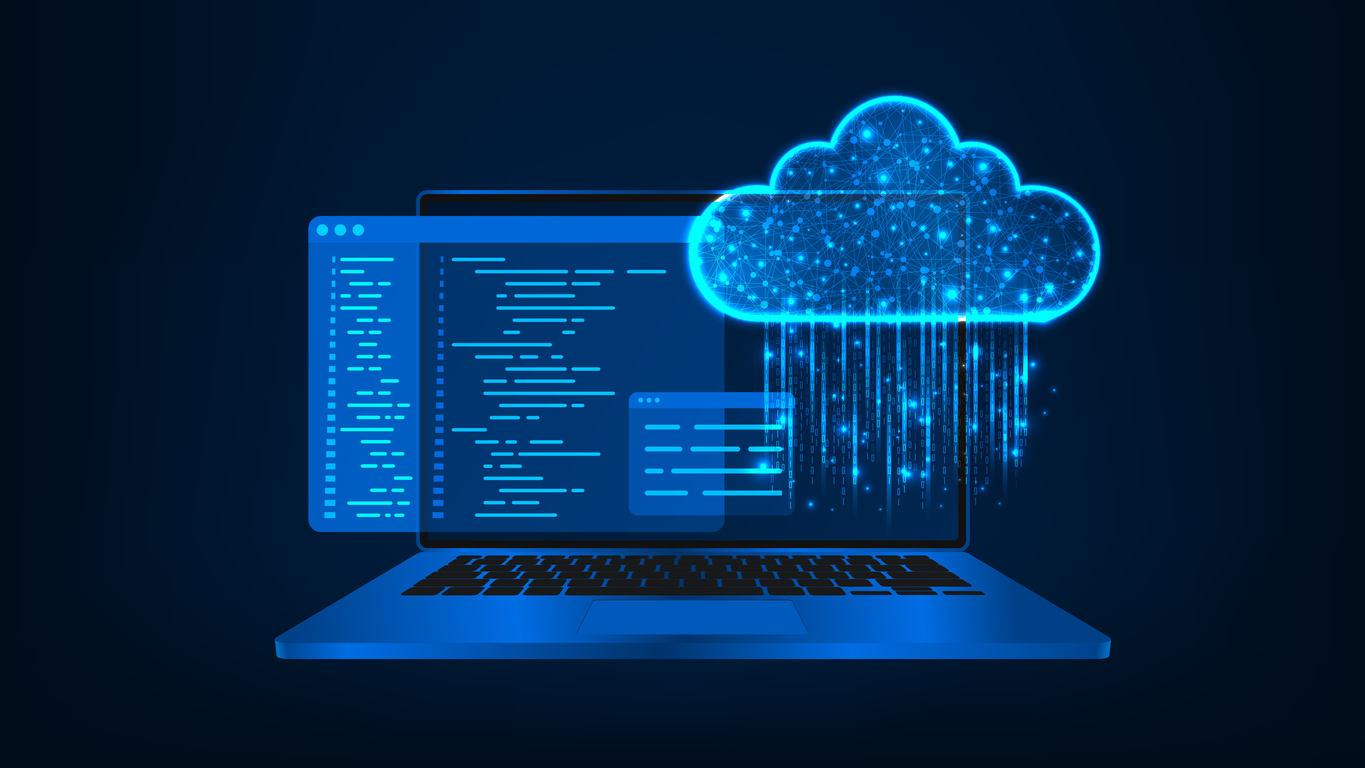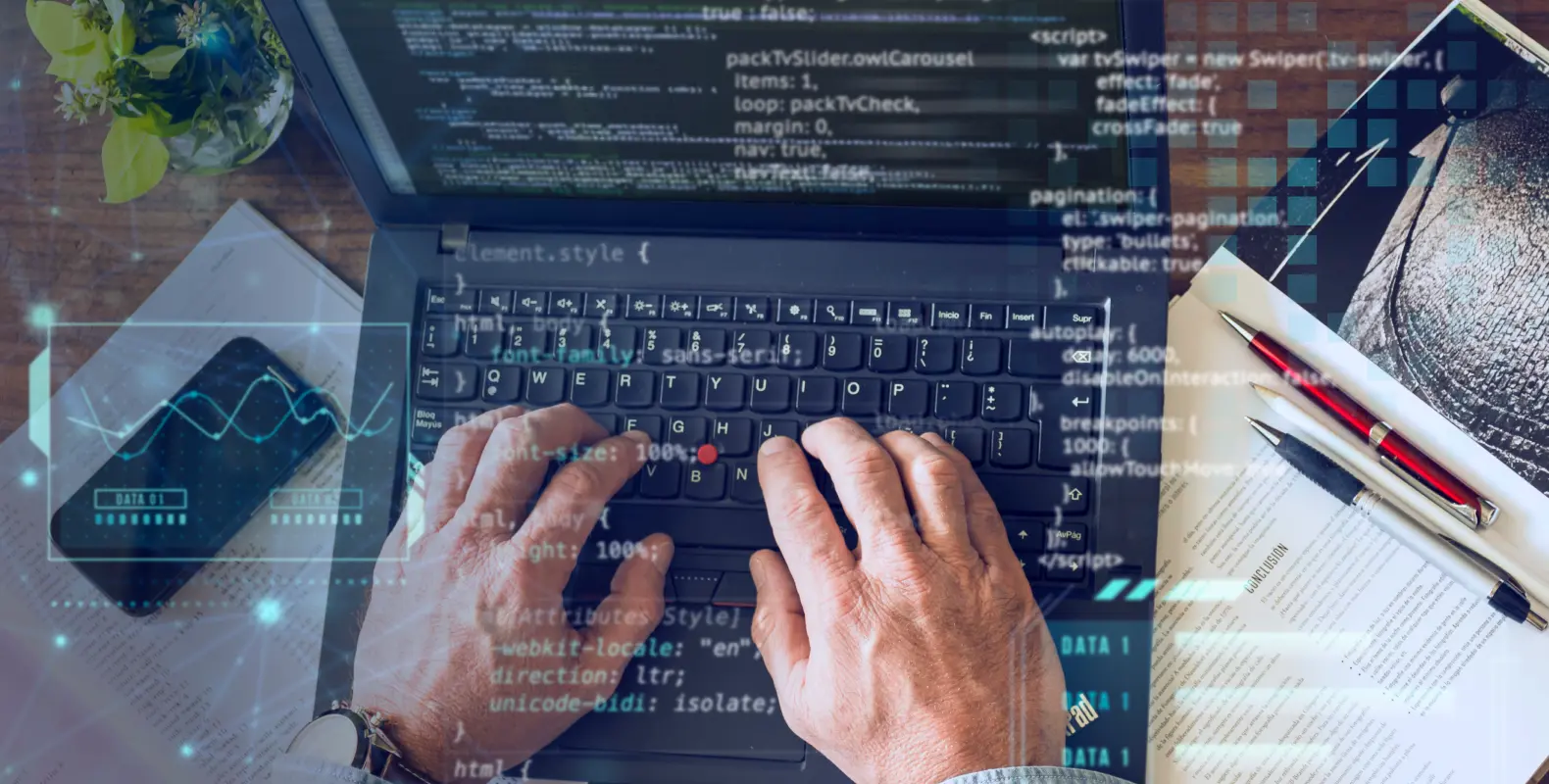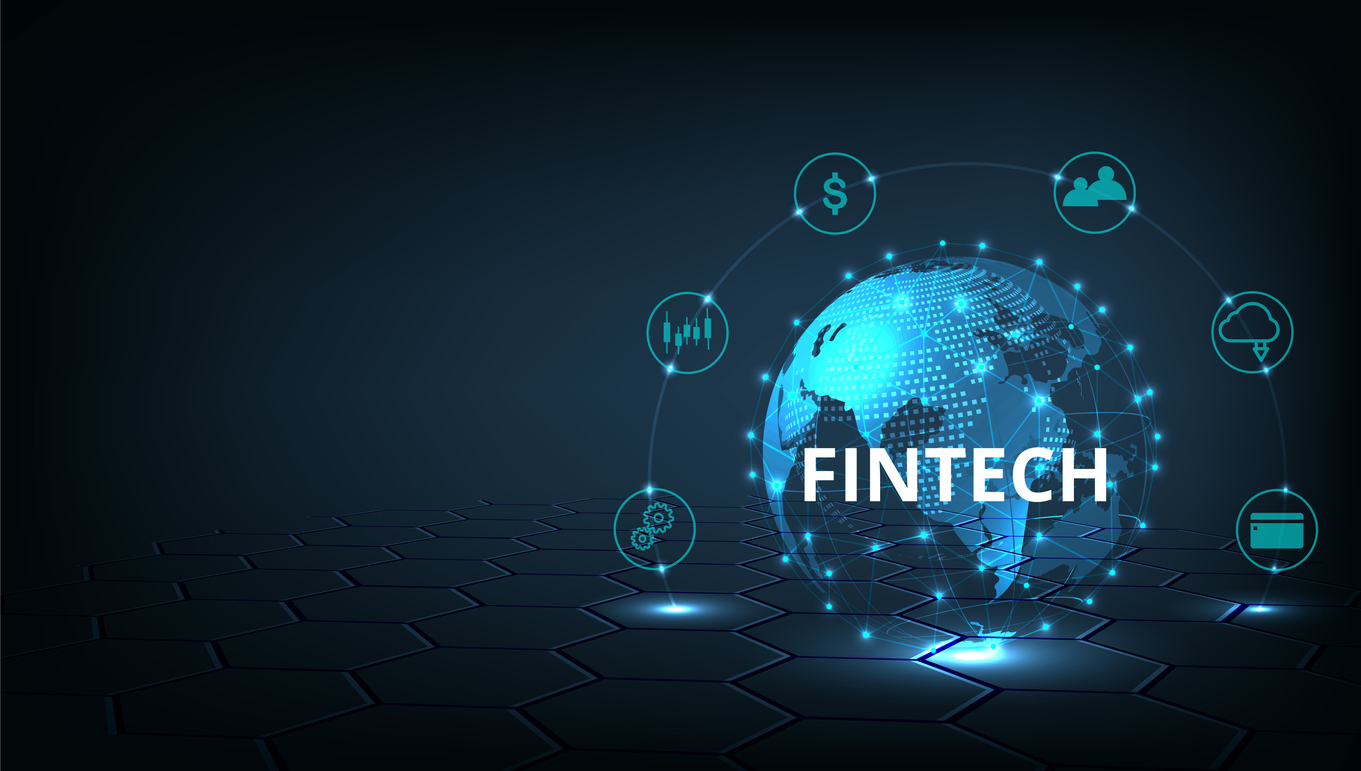We evaluated each company’s technological expertise, innovation in AI/NLP, integration capabilities, data security, client reviews, cases diversity, and measurable project success. We also appointed extra points to the companies with experience across highly regulated industries and those offering strong post-deployment support.
Top 10 chatbot development companies

 25 minutes read
25 minutes read
Content
We won’t risk being overdramatic, saying that chatbots have transformed the way businesses communicate with their customers. They have truly become integral to customer support, marketing automation, virtual assistants, and knowledge management. According to Statista, the global chatbot market was valued at USD 7.01 billion in 2023 and is projected to surpass USD 20.8 billion by 2030, growing at a CAGR of unbelievable 16.4%.
This growth is fueled by the maturity of natural language processing (NLP) and machine learning (ML) that, in turn, has enabled chatbots to understand not just text, but an intent and context beyond basic rule-based scripts. Moreover, the rise of generative AI models like OpenAI’s GPT-4 and Anthropic’s Claude made chatbots more human-like with the possibility to handle complex interactions and require minimal supervision.
This trend created a demand for professional chatbot development companies, since it’s not an easy task. Building a chatbot requires deep expertise in UX design, integration with enterprise systems, AI model tuning, and compliance with data privacy regulations such as GDPR, HIPAA, or CCPA. A well-thought-through chatbot can boost engagement, automate up to 80% of routine queries, and provide 24/7 support across channels.
In this article, we’ll explore what AI chatbot companies do and how they operate, why businesses should consider hiring expert developers instead of building chatbots in-house, and the industries where chatbots bring the most value. Besides, we explain the selection criteria used to evaluate potential technical partners, along with a list of the top 10 chatbot solution providers that stand out for reliability and verified results. Let’s begin with the essentials.


Launch your custom chatbot today
Tell us about your chatbot idea
Top AI chatbot companies to follow
The chatbot development ecosystem is rich and diverse, but some firms consistently stand out. Below is a thoroughly selected list of the top 10 chatbot development companies that combine AI expertise with strong delivery records across industries.

Blackthorn Vision
Blackthorn Vision is a custom software development company specializing in AI-driven solutions, including custom chatbot design and integration. The company focuses on crafting chatbots that combine natural conversation with solid business logic. Blackthorn Vision’s teams work closely with clients to define their requirements and needs, design conversational flows, and integrate chatbots with existing business systems – CRMs or ERPs.
The company’s chatbots often incorporate machine learning, natural language understanding (NLU), and predictive analytics, making it an ideal partner in industries such as healthcare, biotech, and finance.

Fivewalls
Fivewalls is a Slack bot development company specializing in workplace automation and AI-powered communication solutions. The company transforms Slack workspaces into intelligent automation hubs, helping businesses reduce manual tasks and streamline team collaboration through custom-built integrations.
Their bots incorporate machine learning capabilities to handle routine workflows, automate reporting, and facilitate real-time team communication. Rather than generic solutions, Fivewalls designs custom workflows tailored to each client’s tech stack, ensuring seamless integration and long-term operational efficiency.

BotsCrew
Founded in 2016, BotsCrew is a chatbot development company in USA, specialising in custom AI assistants for enterprises and startups. Besides States, it has development centres in Eastern Europe, covering numerous timezones. The company is recognised for its agile development process and exceptional UX design.
BotsCrew develops chatbots for customer support, e-commerce, and healthcare, offering full integration with CRMs, helpdesks, and analytics systems. Their proprietary Bot Framework allows rapid prototyping and continuous learning, ensuring each solution evolves with user behaviour. The company also offers Bot Analytics – a custom dashboard that tracks performance and optimises intent accuracy over time.

LeewayHertz
LeewayHertz, based in San Francisco, is one of the most respected software development companies in the AI and blockchain sectors. Their chatbot solutions leverage GPT-based models, Rasa, and Dialogflow CX, helping businesses deploy conversational systems capable of reasoning, summarizing, and learning autonomously.
They build chatbots for industries like healthcare, insurance, and logistics, often integrating them with ERP, CRM, and supply chain management platforms. LeewayHertz is also known for its expertise in custom LLM fine-tuning, allowing clients to create proprietary models trained on internal data.

Symfa
Symfa is a technology consultancy and software development service with strong expertise in AI automation and enterprise digital transformation. They focus on designing scalable and compliant systems tailored for different sectors. Symfa’s engineers work closely with clients during discovery and post-deployment to reach smooth integration with existing IT ecosystems. The company is praised by its clients for transparency, agile management, and focus on measurable business outcomes, which makes it a trusted technical partner, not just a vendor.

Brainhub
Brainhub is a Poland-based software development company with U.S. partnerships. It is recognised for building user-friendly chatbots and digital assistants. Their team blends software engineering with product strategy and delivers solutions that prioritise business goals and user satisfaction. They also provide AI consulting, helping clients define automation strategies that align with long-term business objectives.

Innowise Group
Innowise Group offers custom software development services with strong expertise in AI and data analytics. With more than 1,500 engineers, the company delivers intelligent chatbot solutions for healthcare, education, and finance sectors. Their chatbots integrate NLP, speech recognition, and predictive analytics for real-time decision-making. Innowise also provides AI maintenance services, continuously monitoring bot performance and retraining models to reach better accuracy.

LivePerson
LivePerson is a U.S.-based leader among conversational AI chatbot companies. It works with large enterprises and provides them with intelligent chatbots and messengers that automate communication across web, SMS, and social media channels.
Its proprietary Conversational Cloud allows companies to deploy and manage thousands of bots. LivePerson is widely used by Fortune 500 firms in retail, telecom, and financial services. The feedbacks highlight how the company has helped brands achieve higher levels of customer satisfaction and reduce call volumes.

Softweb Solutions
A subsidiary of Avnet, Softweb Solutions is a U.S.-based company specialising in AI, IoT, and data engineering. Their chatbot services cover everything from conversation design and intent modelling to AI integration and performance analytics. Softweb operates across industries, but its focus is on fields that require advanced data interaction. Those are manufacturing, logistics, and energy sectors. The company is also known for combining AI chatbots with IoT data streams for predictive maintenance and real-time monitoring use cases.

Chetu
Chetu is another well-established U.S.-based software development company that delivers custom AI chatbots for a number of industries. Their main focus lies on enterprise-grade chatbots, integrating NLP, sentiment analysis, and multilingual capabilities.
Chetu’s portfolio includes custom chatbots for banking, hospitality, healthcare, and insurance, a lot of them – embedded directly into mobile apps and web portals. They also highlight post-deployment analytics and optimisation among their chatbot development services.
What are AI chatbot companies, and what do they do?
AI chatbot companies specialise in creation, deployment, and support of conversational interfaces, or, as we call them – chatbots. They work with user experience design, artificial intelligence, data integration, and compliance to deliver a solution that is tailored to the specific requirements of every client. These companies usually provide the following set of services.
Custom chatbot creation
Chatbot development firms don’t offer ready-made solutions, they deliver exactly what your business needs. To do so, they map out user personas, journey flows, and intent hierarchies, and determine whether the chatbot will be rule-based, AI-driven, or a hybrid model. Then, designers build prototypes that simulate conversations, testing tone of voice, personality, and escalation points to human agents. They also select the appropriate AI model (custom NLP engine, GPT-based large language model, or proprietary systems).
Development teams implement the chatbot using platforms such as Microsoft Bot Framework, Dialogflow, Rasa, or custom-built architectures. They code business logic, integrate APIs, and connect data sources to power the chatbot’s knowledge base.
Integration with business systems
Leading chatbot developers ensure integration with your CRM systems, such as Salesforce and HubSpot, ERP platforms (SAP, Oracle), HR systems (Workday, BambooHR), and customer service suites like Zendesk and Freshdesk. A banking chatbot, to instantly retrieve account details or process loan applications must connect to secure back-end systems. Similarly, an e-commerce chatbot must check inventory, track shipments, and update orders in real time. By integrating with existing systems, chatbots move from so-called FAQ bots to fully transactional digital assistants.
Advanced AI and NLP technologies implementation
Modern chatbots rely on natural language processing (NLP) and machine learning (ML) to understand and respond to users. Bot technology companies fine-tune models to industry-specific jargon, handle multilingual queries, and recognise sentiment. Many firms also deploy context management and conversational memory, so the bot remembers past interactions. Advanced setups incorporate voice interfaces, using speech-to-text and text-to-speech engines, or multimodal capabilities, such as images and documents.
Post-deployment support and maintenance
Top chatbot development companies offer constant monitoring, maintenance, and optimisation of the chatbot they designed. This includes updating the knowledge base, retraining NLP models, adding new integrations, and scaling infrastructure as usage grows. They also track performance metrics, such as containment rate, average handle time, and customer satisfaction (CSAT), to measure the impact and adjust their strategy. Regular security updates, load testing, and user feedback loops are standard practice.
Data security and compliance
Since chatbots frequently process sensitive information such as medical records, payment details, or personal identifiers, security and compliance are non-negotiable for them. Experienced chatbot developers build systems to comply with frameworks like GDPR, HIPAA, PCI DSS, and CCPA. Encryption at rest and in transit, secure API gateways, role-based access controls, and detailed audit logs form the backbone of secure chatbot architecture. Some companies also provide on-premise deployment options for clients with strict data residency requirements.
Scalability for growing businesses
Finally, chatbot developers architect every brainchild with scalability in mind. As businesses grow, chatbot workloads can surge, especially during seasonal peaks or product launches. By deploying on cloud infrastructure (AWS, Azure, Google Cloud), developers can easily scale resources and maintain performance, and uptime.
Scalability also applies to functionality. A chatbot might start as a simple support tool and evolve with time into a full-fledged virtual assistant with voice capabilities and predictive analytics. Leading companies build modular architectures so clients can just add new capabilities without re-building from scratch.
How chatbots integrate across industries?
Nearly every industry is now integrating conversational AI into its core workflows. In customer service, chatbots reduce ticket resolution time by up to 40% and lower operational costs by as much as 30%. In e-commerce, bots enhance personalisation, guiding customers from product selection to checkout. In healthcare, they assist patients with symptom triage, medication reminders, and scheduling. Even in B2B enterprises, internal chatbots assist with HR inquiries, IT requests, and other routine tasks.
Below is a breakdown of the industries where chatbots present the highest value and potential.

Healthcare
Healthcare has become one of the most dynamic sectors for chatbot adoption. Medical institutions use AI assistants to manage appointments and deliver personalised care information. According to eMarketer, more than 73% of healthcare organisations plan to integrate chatbots or virtual health assistants by 2026.
AI-powered healthcare chatbots can:
- Guide patients through symptom assessment using structured decision trees;
- Automate scheduling, reminders, and follow-ups;
- Provide medication instructions or insurance information;
- Assist clinicians by retrieving patient data and lab results on demand.
Travel and hospitality
In travel and hospitality, chatbots are transforming how customers book, manage, and personalise their journeys. From flight check-ins to hotel room upgrades, AI assistants now handle tasks that once required human agents. The Global AI Sentiment Report published by Booking.com revealed that 65% of consumers are expecting autonomous trip planning to go mainstream in the near future. Two in three (67%) have already used AI in some aspect of travel, and of those, nearly all have turned to it for planning or booking (98%) or while already on a trip (96%).
Chatbots in this sector can:
- Manage flight and hotel reservations;
- Offer personalised travel recommendations based on user preferences;
- Provide instant multilingual support;
- Handle cancellations or rescheduling in real time.


Request a personalized demo
Stop missing leads. Start Here
Human Resources (HR)
In HR, chatbots automate everyday tasks, freeing personnel for strategic responsibilities. From onboarding new hires to answering policy questions, AI assistants improve both efficiency and employee satisfaction. A SHRM report claims that between 35% and 45% of companies have now adopted AI in their hiring processes, with the AI recruitment sector projected to expand at a 6.17% compound annual growth rate from 2023 to 2030.
Key HR chatbot applications include:
- Employee onboarding and training assistance;
- Policy Q&A and leave management;
- Recruitment screening and candidate engagement;
- Internal help desks for payroll or IT support.
Prem Kumar, CEO and co-founder of Humanly – an AI recruiting platform and talent CRM – claims that AI-based solutions can optimize inefficient and biased human processes, and reduce cost-per-hire by as much as 30%. “It allows the recruiters to spend more time building relationships with that shortlist of qualified candidates rather than going through hundreds of resumes,” Kumar says.
Education and eLearning
Chatbots are making education more interactive and accessible, than ever. Well-known platforms like Duolingo and Coursera have integrated chatbots to enhance student engagement and retention. Educational institutions use AI tutors to guide students through coursework, answer questions, and track progress. The global education technology market size is projected to reach USD 348.41 billion by 2030, growing at a CAGR of 13.3% from 2025 to 2030, and using AI is a major contributor to the market growth.
Today, AI chatbots can:
- Deliver personalised learning recommendations;
- Support language learning and tutoring;
- Provide administrative assistance for enrolment and class scheduling;
- Organize the collection of student feedback.
Biotech
In biotechnology, chatbots play a role in research assistance, data retrieval, and regulatory compliance. They help scientists query large datasets, manage laboratory schedules, and access experimental documentation – just to name the few. For example, AI assistants integrated with LIMS (Laboratory Information Management Systems) enable researchers to quickly retrieve sample data, track experiment progress, or receive alerts about quality control issues.
Chatbots also support clinical trials. They interact with participants, simplify and accelerate collecting feedback, and ensure complete adherence to protocols. As AI continues to merge with life sciences, chatbots are becoming valuable tools for both operational efficiency and knowledge management.
Oil and gas
The oil and gas sector is known for its complex logistics and safety protocols, that require thorough human control and monitoring. Yet, the industry is leveraging chatbots to improve communication and operational visibility. Digital assistants help engineers and field workers access data, report incidents, and manage assets in real time, preventing incidents. For example, giants like Shell and BP have implemented AI-driven bots for field data reporting and customer interactions. These solutions enhance safety and improve decision-making through instant access to data.
Chatbots in the oil and gas sector typically handle:
- Equipment monitoring and maintenance requests;
- Safety compliance reporting;
- Workforce scheduling and training;
- Supply chain coordination.

Why partner with AI chatbot development company?
Building an effective chatbot requires far more than code deploying or using a pre-built template. It demands a combination of artificial intelligence, linguistic modelling, understanding of business processes, UX design, and ongoing optimisation. While some organisations experiment with in-house chatbot projects, the majority soon discover that working with a professional AI chatbot development company is more beneficial. It is cheaper, accelerates time to market, and offer better outcomes in the long term.
Here are the key reasons why partnering with a specialised AI chatbot company is the optimal route for most businesses.
They have expertise across technologies
Chatbot development firms bring experience across platforms and AI frameworks, ranging from Dialogflow, Microsoft Bot Framework, and IBM Watson Assistant, to open-source tools like Rasa or Botpress. Their teams typically include AI engineers, UX designers, data scientists, and integration specialists to ensure that every aspect of the chatbot is operational and user-friendly.
These companies understand the nuances of intent classification, entity recognition, and dialogue management. They know how to train models to handle ambiguous queries, switch contexts mid-conversation, and adapt tone according to the customer’s sentiment. In a market where 54% of users abandon chatbots after a single frustrating interaction, this level of precision is a decision maker.
They apply the best development methodologies
Leading AI chatbot companies follow structured, research-backed development lifecycles. They start with discovery and intent mapping, followed by UX flow design, AI model training, integration, and testing. The result is not only a technically sound chatbot but the one that aligns with business goals and brand personality.
This process also involves A/B testing of different responses, tone variations, and call-to-action placements, as well as fine-tuning the chatbot to improve engagement metrics such as session duration, retention rate, and completion rate.
They integrate a chatbot with your existing ecosystems
Professional chatbot developers understand that a chatbot is more than a standalone widget; it should work as an extension of existing digital ecosystems – CRM, ERP, HRMS, or marketing automation systems. For instance, when a returning customer contacts support, the chatbot can instantly reference previous interactions or open service tickets. This ensures a personalised experience that boosts satisfaction and makes a customer loyal. In fact, personalised chatbots improve customer engagement by up to 80%.
They deliver faster
Building an enterprise-grade chatbot from scratch can take months and consume significant resources. Outsourcing to a chatbot development company shortens the timeline thanks to leveraging pre-built modules, reusable NLP models, and ready-made connectors. Additionlly, most of those firms operate under agile methodologies, delivering a minimum viable product (MVP) in as little as 6-8 weeks. You can test it and give your feedback before full-scale deployment, and receive an even more tailored chatbot.
They offer continuous optimization and support
Chatbots are not what they call a set-and-forget system. They require regular updates, retraining, and feature enhancements to stay effective. Reputable chatbot software companies offer post-deployment support, which includes continuous model retraining based on new user data, analytics-driven improvements, integration of new communication channels, such as WhatsApp, Slack, or Teams, and compliance updates for evolving data privacy laws. Those ensure that your chatbots evolve with your business and its needs.
They offer enhanced security and compliance
AI chatbot solution companies are well-versed in security protocols and compliance frameworks such as GDPR, HIPAA, ISO/IEC 27001, and SOC 2. They implement encryption, tokenisation, and role-based access control to ensure sensitive information remains protected. For industries like healthcare, finance, education, or biotech this expertise is invaluable. A compliant chatbot not only safeguards data but also strengthens trust between businesses and their customers.
They allow for a faster ROI and business scalability
By delegating chatbot development to experts, businesses accelerate their return on investment. Researchers say that AI-powered chatbots will help companies save over $80 billion annually by 2026, mainly through reducing customer service costs and increasing operational efficiency.
Once deployed, chatbots operate 24/7, handle thousands of interactions simultaneously, and continuously learn from user feedback. This way, businesses can expand customer engagement without proportional increases in personnel or cost.
Last but not least, partnering with a dedicated chatbot company frees internal teams to focus on their primary objectives – product innovation and marketing, while technical complexity is handled by experts.
How we built our list of the best chatbot companies
With hundreds of firms claiming AI and NLP expertise, choosing the right partner is not an easy task. To identify the top chatbot software companies for this article, we applied a comprehensive list of criteria – you can see them below.
Customisation abilities
No two businesses share the same workflows or challenges. The best chatbot companies deliver highly customised solutions, not one-size-fits-all templates. They analyse the client’s processes, tone of voice, customer personas, and operational goals to design a chatbot that fits its environment.
Customisation involves tailoring AI models, dialogue flows, and integrations. For example, a healthcare chatbot must understand medical terminology and comply with HIPAA, while an e-commerce bot must integrate with payment systems and manage dynamic product catalogues.
Technological versatility
AI and NLP evolve rapidly, and leading chatbot developers continuously adopt the latest technologies to improve accuracy, context awareness, and user experience. Firms that stand out in this space go beyond static intent-based models and use transformer architectures, large language models (LLMs), and reinforcement learning to reach natural, human-like conversations. Innovation also includes voice AI, emotion recognition, and multimodal interfaces, where chatbots can process both text and visuals.
Client testimonials and reviews
Reputation plays a crucial role in evaluating software partners. To ensure transparency and reliability, we reviewed client testimonials, independent ratings, and verified case studies from platforms like Clutch, GoodFirms, and G2. Firms with consistently high ratings (4.8/5) demonstrate strong customer satisfaction, project delivery, and post-launch support. Testimonials often highlight their responsiveness, communication, and problem-solving approach.
Portfolio diversity
The ability to deliver chatbots across different industries is a signal of technical breadth and adaptability. Leading firms don’t confine themselves to a single niche, but build conversational systems for various fields (retail, healthcare, biotech, education, insurance). A diverse portfolio suggests that developers can quickly understand complex business domains, customize accordingly, and manage multiple data environments. For example, a company that has built a financial advisory chatbot and a telemedicine assistant likely possesses strong integration and security capabilities.
Deployment and integration capabilities
Top chatbot companies smoothly integrate with client infrastructure, connecting chatbots to CRM, ERP, HR, and marketing automation systems. We prioritised firms that ensure minimal downtime, solid API connectivity, and scalability during peak usage. These companies use DevOps and CI/CD pipelines to manage continuous updates, guaranteeing reliability and consistency across user interactions. Firms that provide omnichannel integration, deploying chatbots across websites, social media, and mobile apps, deserve even more attention and prise.
Expertise in Data Analytics
The best chatbot companies embed analytics dashboards to monitor key metrics, such as user intent accuracy, conversation length, drop-off rate, and customer satisfaction, so that businesses can identify weaknesses in conversation flows, retrain AI models, and measure ROI. Leading providers also employ predictive analytics and AI-driven feedback loops.
Long-term value
This final factor is a combination of transparent pricing, scalability, and return on investment.
Companies that help clients achieve measurable ROI were rated highest. We also considered maintenance policies, noting that firms offering ongoing updates, model retraining, and proactive monitoring deliver greater long-term value and reliability.

Checklist of choosing top chatbot development company
Selecting the right chatbot development partner is a strategic decision, it impacts customer experience and operational efficiency. The market offers hundreds of AI development vendors, each claiming innovation and expertise. To secure a successful partnership, you must evaluate potential partners, aligning technical capability with organisational goals and regulatory requirements. Below is a step-by-step guide to making a sensible decision.
Initial internal assessment
Before evaluating vendors, you must clearly define why you need a chatbot and what problems it should solve. This internal assessment involves identifying target users (customers, employees, or partners), primary use cases (support, sales, internal operations), and success metrics.
Questions to consider are:
- What repetitive interactions can be automated?
- Will the chatbot handle sensitive data requiring compliance?
- Which communication channels will it serve – web, mobile, or social media?
Matching capabilities
Once objectives are clear, match those requirements to the vendor’s technical and domain expertise. Different chatbot developers specialise in distinct areas – rule-based bots for structured workflows, AI/NLP-powered chatbots for natural conversation, voice bots for telecommunication or customer service, or enterprise-level assistants integrated with CRMs, ERPs, or BI systems. You should also assess the team’s experience in relevant industries – not only technical precision but strict data protection and compliance.
Feedback and reviews analysis
An assessment can’t rely on marketing claims alone. Use different platforms to analyse client testimonials, case studies, and verified project outcomes. Pay attention to consistency in project delivery timelines, client feedback on communication and problem-solving, and the vendor’s approach to quality assurance and post-launch support. You can also request references from past clients, especially in your industry.
Demo or PoC request
Before committing, ask for a product demo or a proof of concept (PoC). Reputable bot technology companies can demonstrate the examples of their previous work or even deliver a prototype or a minimal version of your chatbot. Having a demo, you can evaluate conversational design and language naturalness, integration depth with business systems, responsiveness across devices and channels, and analytics dashboards, and performance reporting.
Financial consideration
A chatbot’s total cost of ownership (TCO) includes design, development, integration, cloud hosting, training, and maintenance. Request transparent breakdowns and define a prising model. It’s also important to balance short-term affordability with long-term sustainability. Low-cost providers may cut corners on scalability or support, while high-end firms often include post-deployment optimisation and security updates.
Post-deployment services evaluation
Review their support and maintenance policy, including bug fixes, version updates, and response times for critical issues. Top chatbot companies offer post-launch optimisation to improve intent recognition and overall satisfaction. Some even provide periodic AI audits to ensure compliance with privacy and security standards. By this criteria, you can distinguish long-term partners from one-time contractors.
Legal and regulatory compliance
Data privacy and ethical AI practices are non-negotiable. Ensure that the chatbot development company follows regulations like GDPR, HIPAA, or CCPA, and maintains ISO/IEC 27001 or SOC 2 certifications if applicable. Contracts should clearly outline data ownership, storage policies, and intellectual property rights. Businesses should retain ownership of all data, models, and assets generated during the project. Legal diligence protects not only user privacy but also the organisation’s reputation and future scalability in regulated markets.
How chatbot development companies are shaping the USA market
U.S. firms lead the way in artificial intelligence and natural language processing (NLP). With breakthroughs like OpenAI’s GPT-4, Anthropic’s Claude, and Google Gemini, developers find real-world application to the boldest and the most resent research. Their chatbots can understand tone, context, and intent, handle multiple languages, and respond with the kind of nuance that feels almost human.
Besides, they are creating seamless, multi-channel experiences. With platforms like LivePerson and Google Dialogflow CX, users can move smoothly between messaging, web chat, and voice without losing context. This keeps a conversation natural and consistent, no matter where it started.
Many U.S. chatbot solution companies are also driving enterprise automation. Conversational AI chatbot companies like Chetu and Softweb Solutions combine it with predictive analytics and workflow automation, helping businesses cut costs and speed up operations. Meanwhile, developers such as BotsCrew and Brainhub make AI accessible for smaller businesses through affordable, modular chatbot frameworks.
Summary
After looking at the statistics and the constantly growing amount and variety of chatbot development services, it becomes obvious that AI is now responsible for digital transformation of customer services and communication. It impacts the level of customer satisfaction, simplifies and accelerates problem solving and data collection, and processing, and, therefore, defines business growth. Not to follow this trend is like riding a bike on a Formula 1 race.
Chatbot service providers highlighted in this list range in size, experience, and divercity of delivered solutions, but they represent the best of what the market offers and are ready to become your reliable technical partners in designing and scaling your chatbots. Investing in such partnership today means future-proofing your strategy for the next year and, surely, a decade ahead.
Contact us to get more information about chatbot development!
FAQ
What criteria did you use to combine a list of top-10 chatbot development companies?
What kind of ROI can I expect from a chatbot implemention?
ROI depends on business size and chatbot purpose, but, according to the studies, chatbots can reduce operational costs by 30-40%, increase customer engagement by 50-60%, and pay for themselves within 6-12 months.
Can these companies integrate chatbots with CRM, ERP, and other systems I use?
Yes, absolutely. Leading developers offer system integration using secure APIs. Chatbots can connect with CRMs like Salesforce, ERPs like SAP, HR systems like Workday, and marketing platforms such as HubSpot, ensuring end-to-end automation and real-time data exchange. You can always double-check whether the company supports integration with your specific set of programs.
Do these companies offer post-deployment support?
Yes, all companies on our list provide post-deployment maintenance with model retraining, analytics monitoring, and technical updates; we count it as a non-negotiable condition. Continuous optimization keeps the chatbot accurate, compliant, and ready to grow with a business, not just a once provided service.
How long does it take to develop a chatbot?
For a simple chatbot, it takes 6-8 weeks, while complex enterprise ones may require 3, 4, or even 6 months of work. Timelines depend on discovery, data training, integration, and testing cycles. Choose the company that works on Agile methodology and develops quicker MVP. This way you get an operating solution that get refined and improved step-by-step.
How much does it cost to develop a custom chatbot?
The cost varies and depend on complexity, integrations, AI sophistication, and urgency of the project. Average professional chatbot development company set proses from $25,000 to 120,000. Enterprise-grade systems with advanced NLP or voice AI can cost more than this range. Geography is another significant factor. Asian and Eastern European software development companies offer lower cost ranges than those from North America or Western Europe.
How to choose the best chatbot developer for my business?
First, you need to identify your capabilities and needs – the areas you want to improve with chatbot. Those can include customer support, lead generation, internal communication, or data automation. Then, find chatbot vendors experienced in your sector. Analyze their profiles, request demos, ask for feedback, discuss pricing and post-launch support. Narrow down your list and move to interviews.
Do these companies specialise in any particular industries or deliver specific types of chatbots?
Yes. While most of them offer expertise in various industries, some of them are more niche. Blackthorn Vision and Innowise Group, for example, offer services across fields, but they truly excel in biotech and healthcare, which is highlighted on their website and client feedback. Softweb Solutions, in turn, focuses on industrial and IoT chatbots. BotsCrew and LeewayHertz are the stars in e-commerce and enterprise automation.



